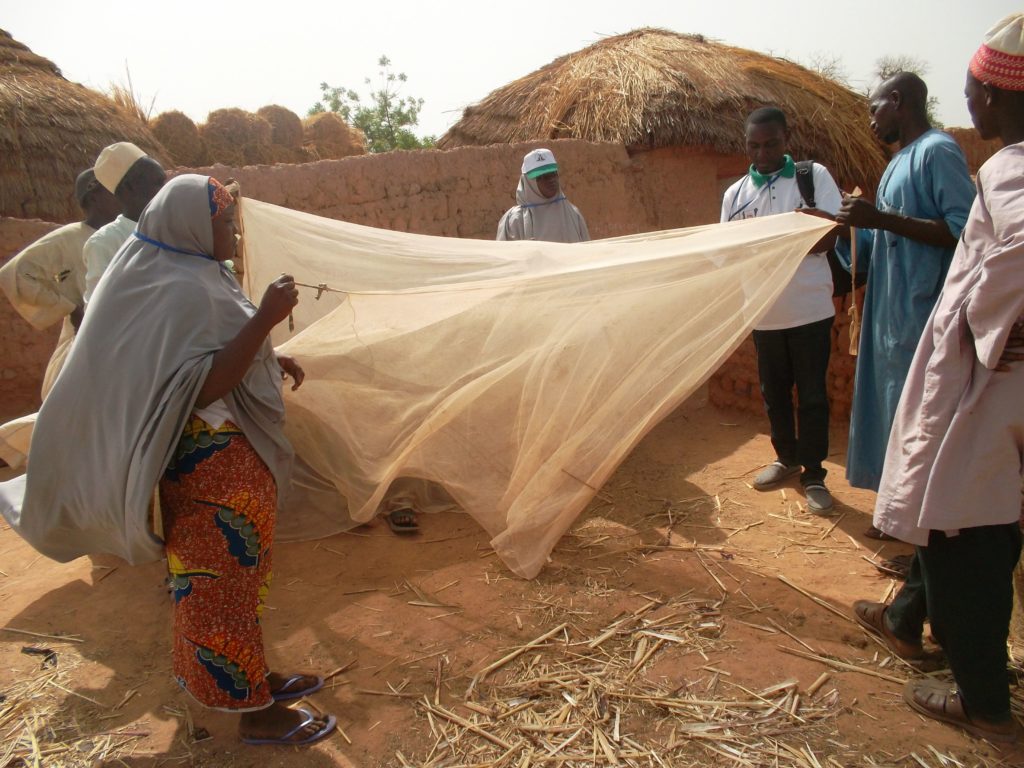Funders
Bill and Melinda Gates Foundation/ International Federation of red Cross and Red Crescent Societies (IFRC)
Location
Global
Dates
2020-2023

Mass campaigns, conducted every three years, are the most common intervention to reach universal coverage. However, national programmes have not been able to achieve over 80% of households owning at least one Insecticide-treated bed nets (ITN) for two people (as universal coverage is defined), even immediately following mass ITN campaigns, due to a combination of a) incomplete or inaccurate population projections for determining ITN needs for procurement and b) ITN quantification approaches that do not provide sufficient ITNs for all households. IFRC, under a grant from The Bill & Melinda Gates Foundation, partnered with Tropical Health to oversee and implement monitoring and evaluation activities and technical assistance for ITN distribution through both campaigns and continuous distribution to support malaria programmes around the globe. The work was closely coordinated with the Alliance for Malaria Prevention, National Malaria Programmes, the U.S. President’s Malaria Initiative, the Global Fund, and the World Health Organisation.
Tropical Health provided a variety of technical assistance focusing on five workstreams within the grant: 1) ITN quantification approaches for mass campaigns and continuous distribution; 2) improving quality of household registration for campaigns; 3) identifying cost-effective options for post-campaign ITN ownership and use assessments; 4) landscaping of digital tools and platforms for use during ITN campaigns; 5) data analysis on varied topics around campaign implementation, ITN durability, and ITN access and use. Tropical Health also provided in-country technical assistance in Zimbabwe for improving quantification for ITN continuous distribution.
Tropical Health delivered annual progress reports and monthly updates on activities. Results were used to generate recommendations for malaria programmes and their technical and financial partners on ITN quantification, particularly for continuous distribution channels, to inform selection of approaches for during- and post-campaign monitoring, and for digital tool platforms for health campaigns. Many of our findings directly inform policies for procurement and planning and Tropical Health’s recommendations for continuous distribution ITN quantification were included in RBM guidance to countries preparing Global Fund funding requests for grant cycle 7.
Over the three year grant period, Tropical Health published results on ITN quantification, finding that continuous ITN distribution strategies could maintain 80% ITN access with fewer nets than with current mass campaign strategies, in areas where ITNs last at least two and a half years on average. We produced a website summarising whether a net’s textile is associated with differences in net use, conducted a landscaping of digital tools and platforms for ITN campaigns, summarised options for during- and post-campaign monitoring of campaign quality, supported a mobile phone survey in Tanzania to compare estimates of ITN access against gold-standard Malaria Indicator Survey (MIS) estimates, conducted a rapid online survey of approaches to net care social behaviour change, and contributed to numerous other guidance and operational documents on AMP’s website. Tropical Health also published a paper summarising the reasons why some nets go unused, using data from malaria indicator surveys, finding that while 72% of nets are used on average, the main reasons for non-use are because the net is extra/being saved for future use, and/or low perception of risk of malaria (e.g. during dry season). Tropical Health is also finalising analysis from ITN durability monitoring and malaria behaviour surveys on frequency of washing nets, to inform policy decisions and social behavior change planning.
Bill and Melinda Gates Foundation (BMGF) / International Federation of Red Cross and Red Crescent Societies (IFRC)
Global
2023 - 2026
UK Foreign, Commonwealth and Development Office and multiple donors
South Sudan
2023-2024
UK Department for International Development (FCDO)
Somalia
2018- 2021